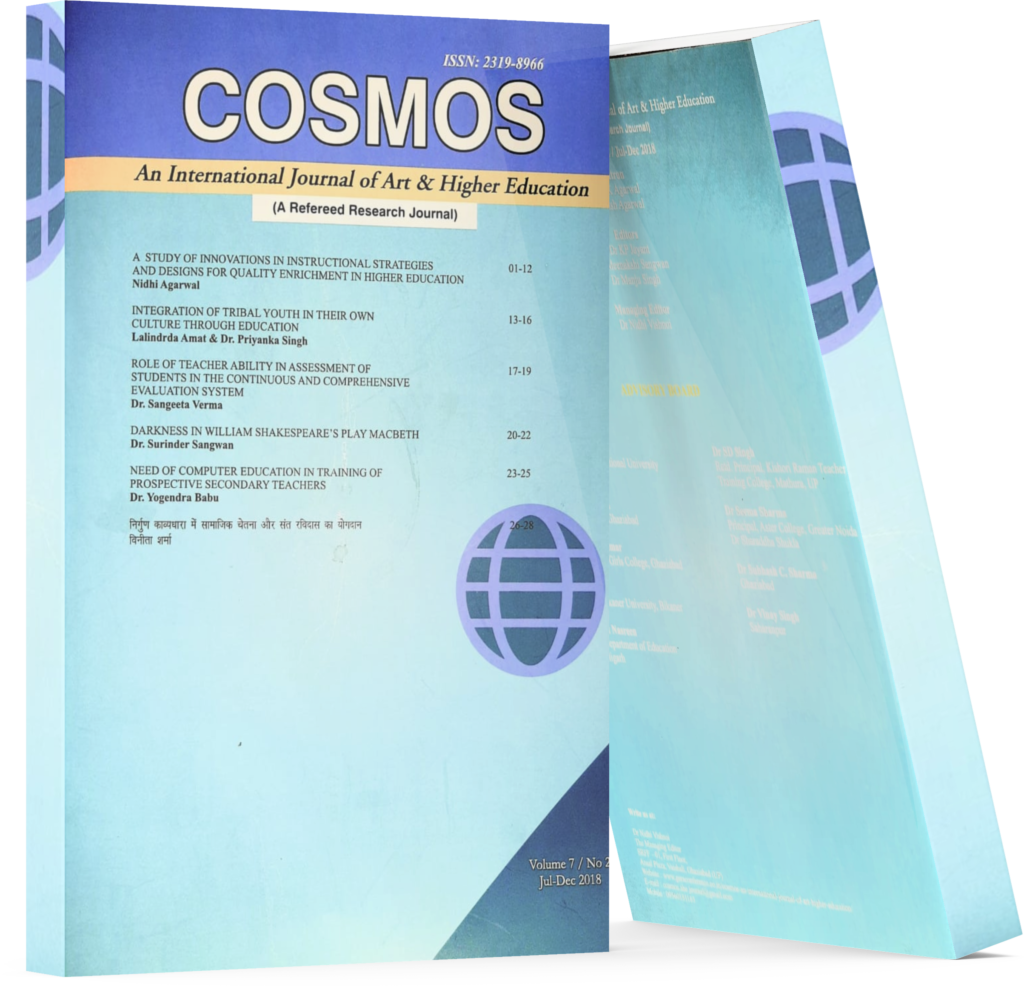Charting La Consolacion Philippins’ Pathway To Research: Capability And Attitudes Of College Faculty And Staff
Keywords:
Research Capability, Research Productivity, Research Skills, Attitude Towards ResearchAbstract
A University’s competitive advantage is primarily determined by its capabilities, which constitute tacit knowledge it utilizes to the optimum. The trinity of functions of any higher education institution - instruction, research and community extension - is driven by its specific vision, mission, and goals. The study aimed at determining whether College faculty members’ research capability and their attitude towards research are significant determinants of their research productivity - completion, presentation, publication, and citation. Respondents comprised of faculty and staff from the six different College departments of LCUP. A descriptive correlational research design was utilized, with data gathered using standardized survey instruments tested for validity, internal consistency and reliability. Findings revealed that collectively, research capability skills significantly impact faculty research productivity, with technical skills as the best predictor. Conversely, constructs of the attitude towards research variable do not account for statistically significant impact on faculty research productivity, whether collectively or individually. Training and support for departments or faculty with minimal scholarly production, the regularity of imposition of research policies to gain acceptability, faculty-to-faculty mentoring and adjustment of faculty compensation considering teaching and administrative works, are recommended to reflect the importance of research production, particularly in compliance with CHED and accreditation requirements.
Downloads
References
Alhija, F. and Majdob, A., (2017). “Predictors of teacher educators’ research productivity”. Australian Journal of Teacher Education, 42(11). Retrieved from
Baruch, Y. and Hall, D.T., (2004). “The academic career: A model for future careers in other sectors?”. Journal of Vocational Behavior, 64, 241-62.
Bergen, T., (2003). “The role of teachers in a changing world: An international perspective”. Research for Educational Reform, 8(1), 49-65.
Boşcor, D., (2015). “Sources of competitive advantage in the field of higher education”. Case Study: Transilvania University of Brasov. Bulletin of the Transilvania Series V: Economic Sciences, 8(57), 2.
Dacles, et. al., (2016). “Cultivating Research Culture: An Analysis of Contributing Factors, the Institution’s Research Initiatives, and Collaboration among the HEI’s Trifocal Functions”.
De la Cruz, Dr. J., (2017). “The research capability of Ilocos Sur Polytechnic State College: A basis for a capability enhancement program”. International Journal of Management and Social Sciences Research, (IJMSSR) ISSN: 2319-4421, 5(7).
Dinis-Oliveira, R.J. and Magalhaes, T., (2016). “The inherent drawback of the pressure to publish health sciences: Good or bad science”, F1000Research¸ doi: 10.12688/f1000research. 6809.2. Retrieved from
doi.org/10.1016/j.jvb.2002.11.002.
Fawzi. H. & Al-Hattami, A., (2017). “Faculty production of research papers: Challenges and recommendations”, Retrieved from https://www.researchgate.net/publication/3157
_Faculty_Production_of_Research_Pape rs_Challenges_and_Recommendations. 9. Gonzalez-Brambila, C. and Veloso, F., (2007). “The determinants of research productivity: A study of Mexican researchers”. Research Policy, 36(7), 1035-1051.
Haan, H.H., (2011). “Competitive advantage, what does it really mean in the context of public higher education institutions?”. International Journal of Educational Management, 29(1), 44-61, https://doi.org/ 10.1108/IJEM-07-2013-0115.
Hampton, S., et al., (2017). “Skills and knowledge for data-intensive environmental research”. BioScience, 67(6), 546-557. DOI: 10.1093/biosci/bix025,
Kim, K. and Kim, J.K., (2015). “Trends in determinants of entry into the academic career: The case of South Korea”, 1980-2010. Plos One, https://doi.org/10.1371/journal.pone.
Lodhi, Ahmad Sohail, (2011). “A pilot study of researching the research culture in Pakistani public universities: the academics’ perspective”. Procedia - Social and Behavioral
Sciences, 31, 473–479. Retrieved from https://core.ac.uk/download/pdf/82562731.pdf. 14. Mainardes, E., Ferreira, J. and Tontini G., (2011). “Creating a competitive advantage in Higher Education Institutions: proposal and test of a conceptual model”. International Journal of Management in Education, 5(2/3), 145–168.
Mayernik, M., (2015). “Peer Review of Datasets: When, Why, and How”. Bulletin of American Meteorological Society.
Miller, A. Taylor, S. and Bedeian, A., (2011). “Publish or perish: Academic life as management faculty live it”. Career Development International. 16(5), 422-445,
DOI: 10.1108/13620431111167751/.
Nuqui, A. & Cruz, R., (2012). “Determinants of faculty research productivity in Augustinian Higher Education Institutions in Luzon”. IAMURE International Journal of Education, 3, 56-74.
Pickstone, C., Nancarrow, S., Cooke, J., Vernon, W., Mountain, G., Boyce, R. A., & Campbell, J., (2008). “Building research capacity in the allied health professions”.
Evidence & Policy: A Journal of Research, Debate and Practice, 4(1), 53-68. Retrieved from http://nectar.northampton.ac.uk/id/ eprint/1342.
Rawat, S. and Meena, S., (2014). “Publish or perish: Where are we heading?”. Journal of Research in Medical Sciences. 19(2), 87-89.
Salmingo, R.B., (2011). “Research capability of state educational institutions: Its relationship to the faculty's attitude & involvement in research”. IAMURE International Journal of Education, 2, 68-88.
Shalem, M., et al., (2016). “Research Capability, Job Satisfaction, and a Multiple Approach of Competitiveness: A Conceptual Framework for University Kuala Lumpur, Malaysia”. Mediterranean Journal of Social Sciences.
Ulla, M., Barrera, K.I., and Acompanado, M., (2012). “Philippine classroom teachers as researchers: Teachers’ perceptions, motivations, and challenges”. Autralian Journal of Teacher Education. 42(11).
Vemon, M., Balas, E.A., and Momani, S., (2017). “Are university rankings useful to improve research?”, A systematic review. PlosOne, 13(3).
Volkwein, J.F. and Sweitzer, K., (2006). “Institutional Prestige and Reputation among Research Universities and Liberal Arts Colleges”. Research in Higher Education, 47(2), 129-148.

